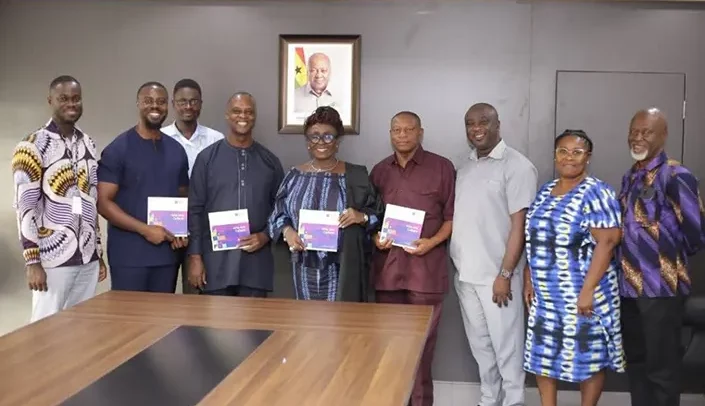A scene from the meeting
The British Council has engaged the Ministry of Tourism, Culture and Creative Arts in discussions aimed at exploring collaborative opportunities to promote Ghana’s rich cultural heritage.
The meeting marked a significant step towards strengthening partnerships to support the growth of Ghana’s tourism, culture, and creative arts sectors.
Speaking at the ceremony, the Minister of Tourism, Culture and Creative Arts, Dzifa Gomashie, expressed appreciation to the British Council for its longstanding support of arts and culture in Ghana.
She underscored the need for greater investment in underfunded areas such as gastronomy, craft, dance, and painting, which she noted had significant potential to elevate Ghana’s cultural identity on the global stage.
“Ghana does not lack talent, but we require the correct training to make our creatives marketable and competitive on the world stage,” the minister stated.
She also emphasised the importance of training and professionalising tour guides, ensuring accurate and compelling narratives of Ghana’s history are delivered without distortion.
The minister called for improved consistency and quality in local arts and crafts, urging the development of policies that reshape mindsets and uphold high standards in cultural production.
Leading the British Council delegation, Nii Doodo Dodoo, an International Development Expert, described the engagement as a “homecoming,” recalling his early experiences as a tour guide in Ghana. He noted that the British Council had operated in Ghana for over 80 years, significantly contributing to the arts and culture sectors.
Mr. Dodoo expressed interest in the “Black Star Experience” initiative, recognising its potential in shaping Ghana’s cultural narrative.
“In the UK, tourism contributes close to 16 billion pounds annually, with about one million people employed in the industry. There are immense lessons Ghana can take from such a model,” he observed.
The British Council reaffirmed its commitment to fostering cultural exchange and supporting Ghana’s creative economy through targeted partnerships. Discussions also focused on enhancing the creative arts sector, positioning tourism as a major economic driver, and equipping young artists with entrepreneurial skills to commercialise their talents effectively. GNA


